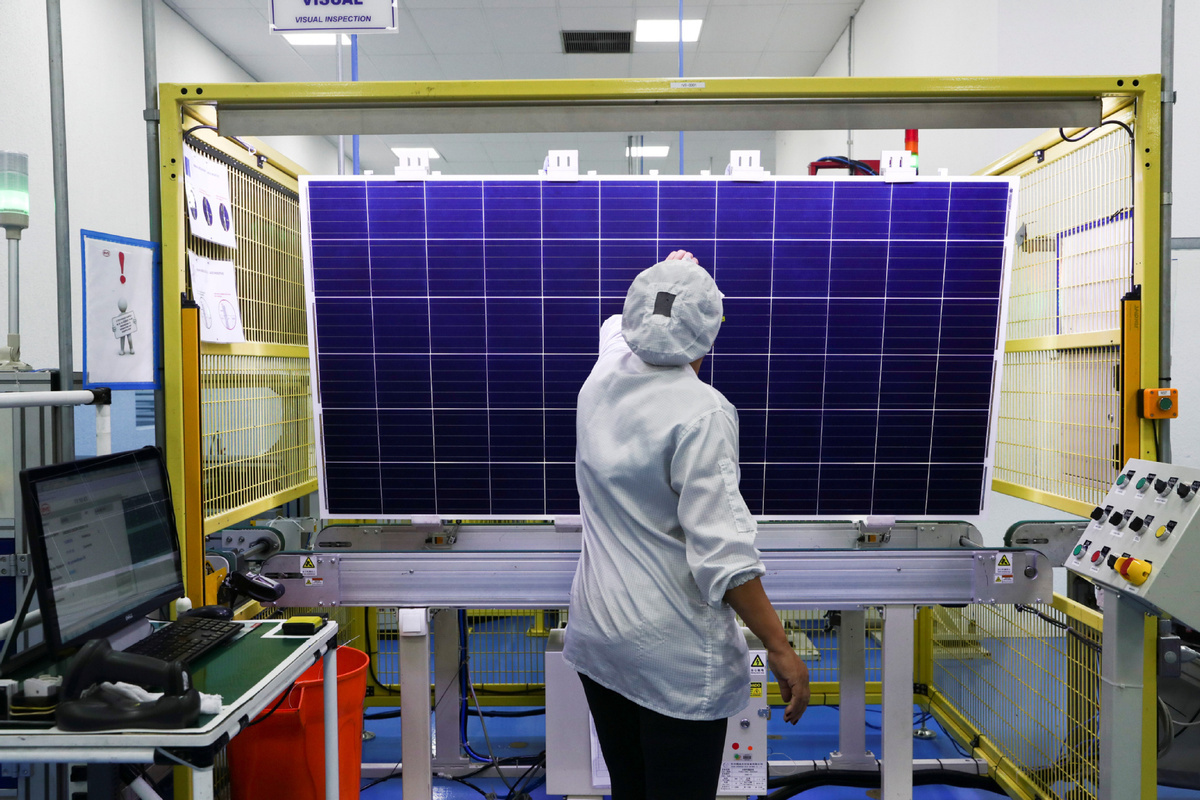Chinese clean energy company contributes to Brazil's sustainable development

SAO PAULO - The trend for renewable energy generation and use of such sources in Brazil is heading in the right direction towards a sustainable future, and Chinese solar batteries and electric vehicles manufacturer Build Your Dreams (BYD) is making a contribution.
"We were the first to bring electric buses to Brazil when there was no such a product in the country," Li Tie, general manager of the Brazilian branch of BYD, told Xinhua in a recent interview while recalling the company's early days in the country.
From the northeast cities of Recife and Salvador to Porto Alegre in the South, BYD brought electric buses imported from China and displayed them in major Brazilian cities, telling local bus operating companies that BYD's electric buses were not "products from the future" but "available technologies."
Over the past few years, BYD's production lines of renewable energy products have expanded in Brazil step by step. It opened the first office in Sao Paulo in 2013; the assembly plants for electric buses and lithium iron ferrous phosphate batteries were established in Campinas, Sao Paulo state, in 2015; the electric bus chassis and solar panel factories were set up in Campinas in 2017; and a battery factory was established in Manaus, Amazon state, in 2018.
According to Li, electric chassis is a core technology of BYD and has major functions such as driving, gearing and braking. A chassis carries BYD's innovative technologies in its batteries, controls and generators.
As the condition of roads in Brazil differs from that in China, electric buses produced earlier had difficulties running on the Brazilian roads. To address the problem, BYD Brazil has modified over 100 techniques and established a process of design, manufacturing and testing on the basis of local demands to adapt to the Brazilian market.
Later in October, BYD Brazil will deliver 12 articulated electric buses to the municipality of Sao Jose dos Campos in the state of Sao Paulo for a fast connection express line. The buses carry the latest biosafe technology, antivirus and antibacterial armchairs, USB sockets and video mirrors.
Brazilian government's emphasis on the use of renewable energy has increased BYD's confidence in and commitment to the market.
Li said, BYD was the first company promoting and leading the development of electric buses and solar power generation, and such technologies have been supported and encouraged by local government. BYD is also leading Brazil's automobile industry towards hybrid and even pure electric mobility by offering batteries to electric vehicle manufacturers and energy storage companies.
BYD "brought 100 percent Chinese technology adapted to the Brazilian market, which was developed by both Chinese and Brazilian engineering," said Marcello Von Schneider, institutional director of BYD Brazil, who believes that the exchange of knowledge and technology is a victory for Brazil to learn to use this technology.
Calling BYD a "sustainable solutions company," the Brazilian executive said BYD wants to change "the concept of mobility in Brazil" and to bring modern and sustainable mobility with zero emission.
As one of the key markets for vehicles in the world, he believes Brazil is ready to be "a global player" in the transition to clean energy and sustainability.
"Brazil can be a pioneer and leader in this process," said Von Schneider. "Cities benefit from the non-emission of polluting gas with an electric bus."
BYD Brazil has planned to bring a few electric passenger car models to the Brazilian market in 2022, Li said.
Talking about development and cooperation between China and Brazil in terms of sustainability, Li said that with abundant resources from Brazil and advanced technologies from China, the combination would be promising and reciprocal for both sides.

